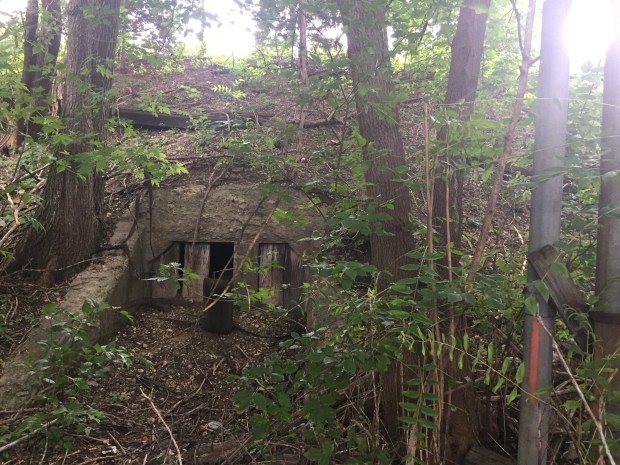Every week we publish a historic photo highlighting a story from Naperville’s past from the history archives of Naper Settlement.
The Rural Life Progress Club played a big role in Naperville and the surrounding community for more than 50 years.
It was formed in 1916 by the Rev. William “W.W.” Diehl of Naperville’s First Methodist Church, who founded a similar group while he lived in Hinckley.
The first meeting was held in the home Clarence and Kate Shoger in January 1917. Clarence served as the club’s first president, and he and Kate hosted an annual meeting each January to celebrate the club’s anniversary.
According to its constitution, the club’s purpose was “the development of better social, intellectual and agricultural conditions in the community south-west of the city of Naperville.”
“Better Soil, Better Buildings, Better Livestock, Better Homes, Better Community” was the club’s motto.
Membership dues of $2 were paid annually by each family. The head of each household, who had to be 18 or older, signed the constitution and promised to improve soil fertility, livestock, standard of life at home and community conditions.
You didn’t need not be a farmer to join the Rural Life Progress Club. Members simply had to be interested in rural life and its progress.
Potlucks and picnics were held during the summer months, with light refreshments served at fall and spring meetings held at members’ homes, Granger School and the Wheatland Salem EUB Church.
Early programs often focused on agricultural issues but as the years went on, the focus shifted to include educational presentations and musical events by local students.
The Rural Life Progress Club, like many other local organizations, was involved in local celebrations, like the Home Coming Parade, as seen in today’s photo, and Old Settler’s Day, which on Sept. 8, 1920, attracted 233 registered guests to Naperville Park for a pageant on the history of Naperville.
The club produced several plays in the 1920s and 1930s, including “Uncle Ephraim’s Summer Boarders” in 1924, “As a Women Thinketh” in 1925 and “Deacon Dubbs” in 1926.
In 1932, Mrs. Dewey Eder directed two plays at Pfeiffer Hall. “Sauce for the Goslings” won prizes at the county and district club levels but lost at the sectional competition.
The club also helped with charitable work. It was involved in barn dances hosted by Chicago radio station WLS-AM at Naperville High School in 1935 and at Pfeiffer Hall in 1936.
The $335 raised by those events was given to the DuPage County Tuberculous Association for X-rays. That would have been the equivalent of $7,433 today, according to www.usinflationcalculator.com.
When a party was held in 1967 to celebrate the club’s 50th anniversary, five founding members were in attendance: Clarence and Kate Shoger; Frank Fraley, the club’s second president, and his wife, Jenny, the first secretary; and Kate Windling, who served as the club’s second secretary.
The Rural Life Progress Club disbanded in the 1970s. The founding members had all died and there were fewer active farms around Naperville.
Andrea Field is the curator of history at Naper Settlement. For more information, go to www.NaperSettlement.org. Steve Metsch is a freelance reporter for the Naperville Sun.



